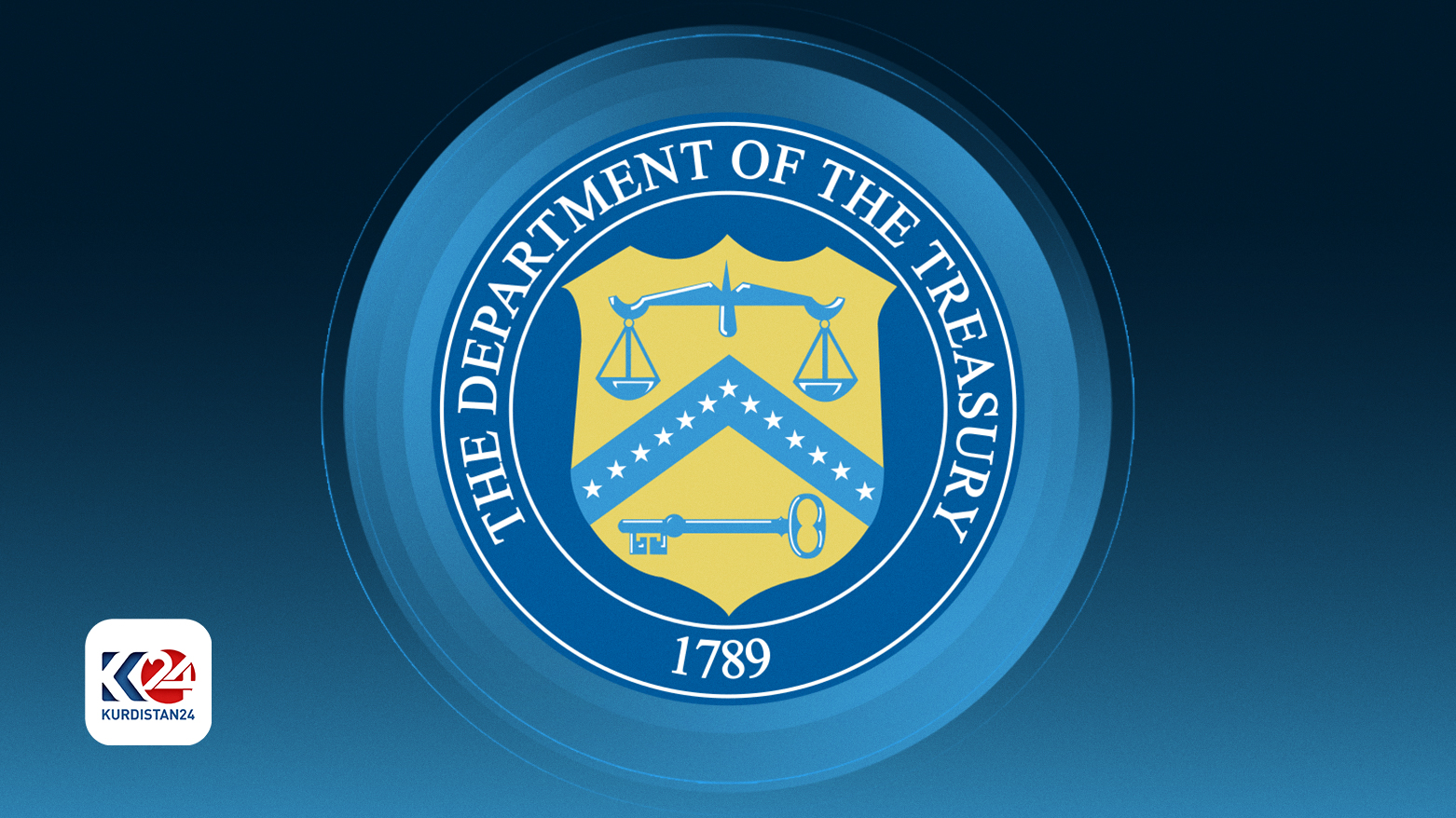U.S. Sanctions ‘Iran’s Shadow Banking Network’
The covert financial system supports Iran’s "procurement and proliferation of advanced weapons systems" and "transfer of weapons and funds to its militant proxies and partners in the Middle East region."

WASHINGTON DC, United States (Kurdistan 24) – The U.S. Treasury Department announced on Tuesday a raft of new sanctions that aim to significantly reduce Iran’s access to the international financial system, so that it cannot acquire hard currency to fund its weapons programs or support its proxy militias.
The measures were announced, as Iran has been exploiting the ongoing war between Israel and Hamas in Gaza to mobilize its proxies across the region. Thus, it has become the single most disruptive force in the Middle East.
In announcing the new steps, State Department Spokesperson Matthew Miller explained that the U.S. was “sanctioning nearly 50 entities and individuals that make up a covert network used by Iran’s Ministry of Defense and Armed Forces Logistics (MODAFL) and Islamic Revolutionary Guard Corps (IRGC) to gain illicit access to the international financial system.”
The two agencies earn money from “illicit trade,” often oil exports, and then use what the U.S. calls “a shadow banking” system to launder the money, concealing its origin, so the funds can be used for “a wide range of destabilizing activities, including terrorism, lethal plotting and transnational repression,” as well as “the development, procurement, and proliferation of advanced weapons systems, extensive human rights abuses, and nuclear activities that lack any credible peaceful purpose,” Miller stated.
The money produced by the covert financial system supports Iran’s “transfer of weapons and funds to its militant proxies and partners in the Middle East region,” Miller continued, “including Yemen’s Houthis who continue a campaign of reckless attacks on global shipping, as well as the transfer of deadly weapons to Russia for use in its war of aggression against Ukraine.”
U.S. Deputy Secretary of the Treasury, Wally Adeyemo, spoke similarly, describing it as “a vast shadow banking system used by Iran’s military to launder billions of dollars of oil proceeds and other illicit revenue.”
Sanctioned Shadow Banking Networks
The Treasury Department identified five networks which it was placing under sanctions, as well as foreign companies associated with those networks.
Three of those networks center around Iranian nationals, but one involves a dual, Iranian-Turkish national, who operates currency exchange businesses in Turkey, as well as Iran. The Treasury Department named him as Seyyed Mohammad Mosanna’i Najibi. Najibi heads Sadaf Exchange.
“Since at least 2020, Najibi has worked directly with top MODAFL officials to execute transfers of U.S dollars to bank accounts in the People’s Republic of China, the Marshall Islands, Turkey and the UAE,” the Treasury Department said (the Marshall islands are a former U.S. territory, now independent, which lies in the central Pacific Ocean, between Hawaii and the Philippines.)
“Najibi has also provided direct financial assistance to the IRGC-Qods Force (IRGC-QF) through the sale of gold in Turkey for U.S.-designed IRGC-QF official Behnam Shahriyari,” the Department statement continued.
It added that the Department had imposed sanctions on 27 “cover companies” that are “based in Hong Kong, the UAE and the Marshall Islands.”
The list of companies includes 16 in Hong Kong, six in the UAE, and one in the Marshall Islands.
The Treasury Department highlighted one business in particular for its military activities: Kuwan Co,. Limited, in Hong Kong.
“Kuwan Co., Limited has used the international financial system to make hundreds of transfers totaling over $30 million to numerous companies,” including a manufacturer of drone parts, Skyline Advanced Technologies, which the U.S. sanctioned in December.
Read More: US Imposes New Sanctions on Support for Iran’s Drone Program
The other illicit banking networks sanctioned on Tuesday revolve around Asadollah Seifi, Ramin Jalalian, and Siavash Nourian. They are all Iranians, and their activities, according to the Treasury Department, while significant, have not been as important as those of Najibi.